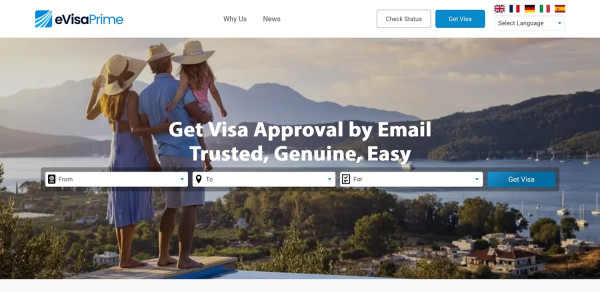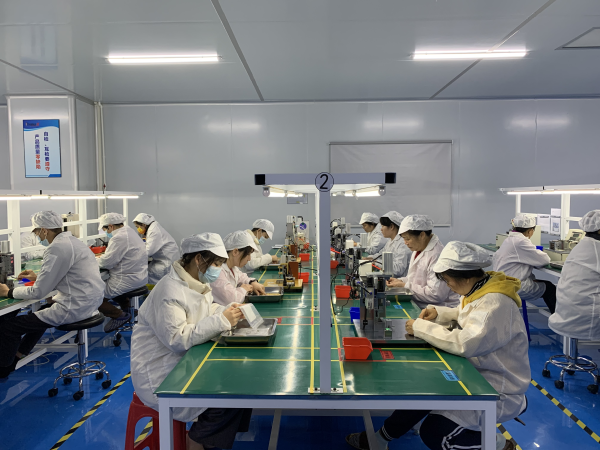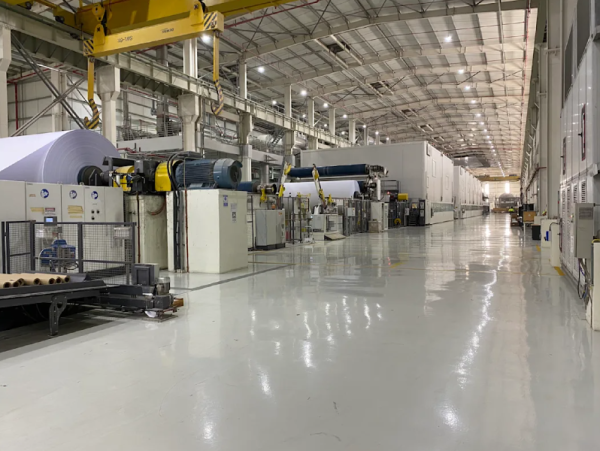Visa Information For India Visa Eligibility, Document Requirements
Visa Information For India Visa Eligibility, Document Requirements
- By Grand News Network
- June 17, 2024

Evisa Online
The E-Visa system aims to simplify bureaucratic procedures for travelers and provide an alternative to visas acquired at border checkpoints. An eVisa serves as an electronic replacement for a traditional visa stamp. Users can submit visa requests for their desired travel destinations through online applications. Individuals considering obtaining a visa can get their travel documents by fulfilling the criteria through the e-visa platform. Online visas are mainly issued for reasons associated with visiting for leisure. This system has yet to be used for processing work permits or student visas. Your eVisa is connected to your passport digitally, rather than using a stamp or sticker. On certain occasions, you may need to present either a physical or electronic version of your eVisa when arriving at your destination. Travelers will be required to provide their passport details, email address, and debit or credit card information in order to successfully submit the India e-Visa Application Form.
Documents Required for the e-Visa
- A Valid passport valid for at least 6 months.
- Passport-style photo of the applicant.
- A valid Email address to receive the E-Visa in their Inbox.
- You can use a Credit or debit card to pay for the eVisa fees.
Common Mistake To Avoid On Vietnam Evisa Application
- Another frequent error is giving inaccurate or inadequate personal details on the eVisa application form. Even a minor error or oversight could lead to your application being denied or facing interruptions. Verifying all the information provided is crucial, including your full name, date of birth, passport details, and contact information.
- Make sure that your passport photo and portrait are unedited, up to date (taken in the past 6 months) and adhering to the specifications for size and format (under 2MB, in either JPG or PNG format). Refrain from wearing glasses, tank tops, or cropping the image on your passport page.
- Verify your full name for errors in spelling and spacing to ensure it matches the ICAO line in your passport. Ensure accuracy of all passport details and utilize proper date format (DD/MM/YYYY).
- Misunderstanding the validity period of your eVisa can lead to overstaying, so make sure to check the visa expiration date.
- Neglecting to request eVisa for accompanying children: Each traveler, including kids, needs to submit their own eVisa application. If your children possess their own passports, they must also obtain an individual visa just like the adults. Some parents are unaware of this information, so they include their children's names on the visa application even if the children have their own passport.
- Track your application status online to promptly resolve any issues. Because the process is online, applicants might assume that the outcome will be sent to the email they provided automatically. Or maybe they are simply not familiar with the status check feature available on the website. Following 3 working days, it is necessary for you to visit the Vietnam Immigration Department website yourself to verify the status of your application.
India Introduces A New Category Of Visa
A visa is usually a type of permission for travel given by a country to enable entry into the country legally. Different kinds of visas are offered, each serving different purposes such as tourist, work, student, transit, immigrant visas, etc. India's Ministry of Home Affairs has introduced a new visa category called Ayush (AY) visa to emphasize its commitment to traditional healing and wellness practices. This visa is specially created for foreign individuals who wish to undergo treatment using Ayush systems and Indian medicine systems. India recently added a new type of visa called Ayush Visa (AY) for foreigners seeking treatment within the AYUSH system in India. This visa is for those who have a curiosity in Ayurveda, Yoga, and other ancient healing practices for health and wellness. Ayush represents the traditional Indian medical system comprised of Ayurveda, Yoga and Naturopathy, Unani, Siddha, and Homeopathy, which has been in use for centuries. The Ayush visa is divided into two sub-categories. A patient visa is for someone going to receive medical treatments, while an Attender Visa is for someone accompanying the patient. The Ayush (AY-1) visa is designed for foreign individuals seeking medical treatment in the Indian Ayush system, which includes Ayurveda, Yoga, Naturopathy, Unani, Siddha, and Homeopathy. An AY-2 visa will be given to the Ayush attendant. The Ayush Visa is available in two options: offline as Regular Paper Visa or online as e-visa. This new endeavor seeks to enhance the medical significance in India and fulfill the goal of promoting traditional Indian medicine on a global scale. The Ayush Union Ministry secretary has stated that the Indian government's travel rules do not affect foreign nationals seeking Ayurvedic treatments from accredited health facilities on a medical visa. Those who qualify for medical treatment can fill out the application by giving important information such as their name, birthdate, birthplace, address, contact details, and passport information.
REQUIREMENTS FOR MEDICAL VISA FOR INDIA
- Applicants must have a passport issued by an eligible country to obtain the India e-Medical visa. This passport must be valid for a minimum of 6 months from the date the traveler intends to arrive in the country.
- In addition, foreign nationals must provide a letter from the hospital in India where they will receive treatment.
- Proof that they have the funds to cover their stay.
- They must also have a return or onward ticket when applying.
- A valid email address to receive the E-visa.
- You can use a Credit/debit card or PayPal account to pay for the Medical E-Visa fees.
Indian E Visa Document Requirements
Residents from 169 nations can now apply for E-Visas to visit India. This effective procedure will make it simple for numerous travelers to get the required entry visa for India. The purpose of the India e-Visa is to streamline the visa application process and increase the number of foreign visitors in the country. India recognizes that e-visas are an accepted method for qualifying tourists to visit the country. A legitimate India e-Visa is necessary for traveling to India. People have the option of going to India for business, tourism, or medical purposes by obtaining an electronic India visa. Completing the India e-Visa Application is straightforward. Travelers will be required to provide their passport details, email address, and debit or credit card information in order to successfully submit the India e-Visa Application Form.
Types of India-Visas
- India e-Tourist Visa
- India e-Business Visa
- Medical e-Visa for India
- India Medical Attendant e-Visa
Documents Required for the Indian e-Visa
- A Valid passport valid for at least 6 months on the expected date of arrival in India.
- Passport-style photo of the applicant
- A valid Email address to receive the Indian E-Visa in their Inbox.
- You can use a Credit or debit card to pay for the eVisa fees.
India Visa Photo Requirements
- The size of the needed Indian visa photo is 22 inches.
- The image must be in color.
- The background of the photograph must be plain and light.
- Only clear, blur-free images are permitted.
- Your head height should be between 1 and 1.375 inches. In general, it should be around 1.3 inches.
- The top of the torso should be visible.
- Look directly into the camera when photography. Lowering your eyes is not permitted.
Media Contact
Organization: Evisaprime
Contact Person: James Charleton Frederick
Website: https://www.evisaprime.com/
Email: Send Email
Country:United States
Release id:13252
Disclaimer: The views, recommendations, and opinions expressed in this content belong solely to the third-party experts. This site was not involved in the writing and production of this article.







